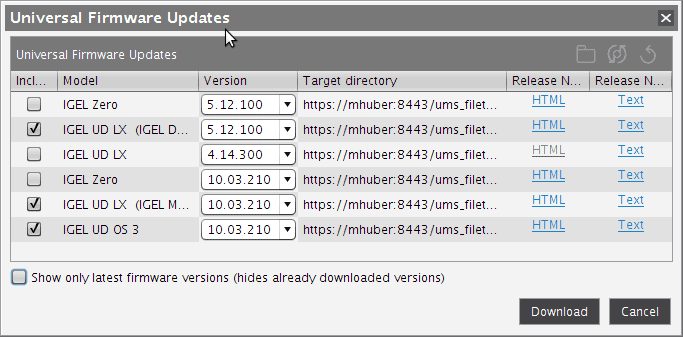IGEL Blog
Is Windows Dying? IGEL Shares Expert Advice on EUC as a Guest on the Dizzion Blog
As IGEL works to evangelize how end user computing (EUC) is undergoing rapid change, Doug Brown and I had the distinct pleasure to provide our views on the Dizzion blog.
Dizzion is an innovator in providing desktop as a service (DaaS) solutions that help to address the changing scope of today’s workforce who demand freedom over where and when they work. As partners, Dizzion and IGEL are working together to deliver compliant endpoint-as-a-service capabilities to customers across multiple industries including healthcare, financial services and education. Read the recent press release.
As guest experts on the Dizzion blog, Doug and I were able to share some of our views on the desktop transformation that is now upon us. Even as we’ve adjusted work habits to embrace smartphones and tablets, we’re now looking at the impact of IoT and the way people access their applications, consume data and engage with the world, all while working to remain productive. Adding to that is the increasing security threat posed by the connected world. It’s clear that EUC can’t just simply evolve, it must be disrupted to meet the needs of today’s organizations.
Why were endpoint devices ready for a change?
In the Dizzion blog, we assert that with today’s multi-faceted threat landscape and the expanding attack surface, endpoint computing must change. But, despite these threats, the core architecture of the Windows OS for the desktop has not changed in the last 30+ years. Windows is still built to be retrofitted every year, and patched every Tuesday. This begs the question as to why we haven’t moved to a new paradigm in desktop computing?
We’ve already seen this happen in the datacenter with software-defined networking (SDN); Software-as-a-Service (SaaS) and Infrastructure-as-a-Service (IaaS) solutions, but why not at the endpoint? Clearly, the endpoint is ripe for a change, and that is exactly what IGEL is doing through our software-defined approach to endpoint security and optimization. IGEL’s Linux-based OS is a modern, secure, desktop operating system. It offers a minimal footprint – enabling quick and easy access to desktop applications, while reducing risk from cybersecurity threats. Through our approach, we are providing businesses of all sizes with a more secure way to deliver desktop applications to their end users.
Read more about our take on the Evolution of the EUC here to learn why we think Windows for the endpoint is on its way out and why desktop virtualization is so viable for today’s business. You’ll also see why we think a smarter approach to EUC will give organizations a competitive edge while minimizing security risk and embracing the IoT paradigm.
What are your predictions? What do you see in store for EUC? Contact uswith your comments.


